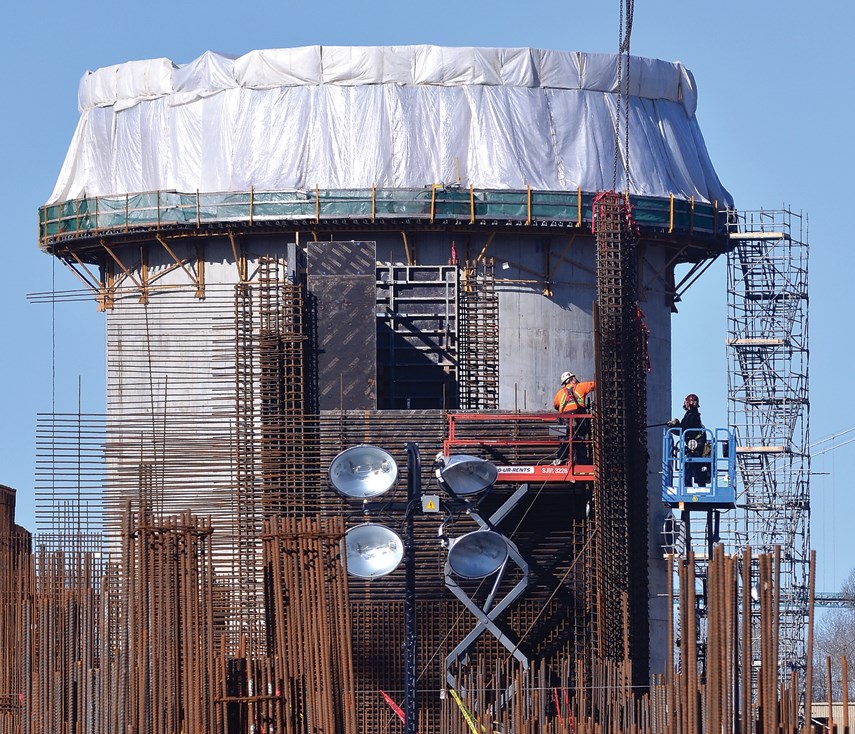It is a cynical practice for governments to love releasing very bad news on a Friday afternoon, when fewer people are attentive and bound to be otherwise occupied on the weekend. Journalists know it cynically, too, as “Take Out The Trash Day.”
And when it comes to a Spring Break Friday? Why, even better.
It was not unexpected, therefore, that Metro Vancouver would select last Friday afternoon to finally formally disclose an embarrassment known internally for months: its revised, meteorically ascendant cost of the North Shore’s wastewater treatment plant.
Last September, as we wrote, regional politicians and officials were privately told the new estimate was about $4 billion, around seven to eight times the original estimate. They shielded that amount from the public until Friday, until a task force could chart some sort of path out of the jungle. The price tag, at least for now, is a mere $3.86 billion.
Even that news was buried Friday late in a lengthy fifth paragraph of a news release front-loaded with a word salad of justification, rationalization and electropositive thinking. Among details explained to reporters: the worst-scenario bill would reach $725 per year for 30 years for property owners on the North Shore and $70 to $140 for 15 years for others in the Lower Mainland.
But the bigger questions aren’t what it is, but why it got to this and what to do about it. We are no closer to those answers.
On its website Metro Vancouver tells us we are “celebrating” 100 years of high-quality drinking water in the region, but excuse me if I’m choking on the expense of the next 30. Some of the explanations for the skyrocketed cost – inflation, high interest rates, labour costs – are bromides that fail to explain the budgeted multiples. And the more serious one-word disclosure – that there were “deficiencies” in the design Metro originally approved – deserves a rigorous, public financial review to assure us there is nothing more troublesome than a multi-billion-dollar miscalculation.
Sometimes it takes a spectacular mess to realize it’s time to clean up. This project, originally pegged at $550 million, stands as Exhibit A in the case to change the guard and perhaps even change the game of Metro Vancouver governance.
No one clamours for more politicians in this day and age, but if the province isn’t willing to take back conferred regional responsibilities, this episode furnishes further argument for an elected regional body. The practice of appointing inexpert municipal officials from among the 21 Metro communities to moonlight in a double-duty governance isn’t working. The projects ahead are only more costly (the Iona Island water treatment plant in Richmond will likely top $10 billion) and call for a sophisticated, focused and more directly answerable regional authority. Today we have taxation without direct representation, activity without electoral accountability. It insults the taxpayer to treat this as a side hustle to pad the pay packets of mayors or councillors who barely breathe, much less campaign on or champion, regional issues.
In other jurisdictions elected regional governments take care of airports, regional roads, waste management, and transit and health authorities, among other things. It leaves municipalities to more granular responsibilities.
We have yet to hear whether the provincial or federal governments will pitch in to mitigate the pocketbook pain of the wastewater project. We should find out if we’re being shown the love pretty quickly, with one election in October and one next year.
It is hardly reassuring to hear Metro Vancouver promise a “long-term financial plan” to persuade senior governments to financially support these big-ticket behemoths. If I were in the big shoes, before handing over a dollar I’d want Metro Vancouver to own its responsibilities and explain how it can convert its epic failure into trusted, credible leadership of the next stage. Just because we need the project doesn’t mean they’re needed to implement it.
And in case we’ve forgotten as politicians court votes with promises: there is only one taxpayer and no magically materializing money. This is just the same pants, different pocket.
Kirk LaPointe is a West Vancouver columnist with decades of experience in Canadian media. His column on North Shore issues runs biweekly.



